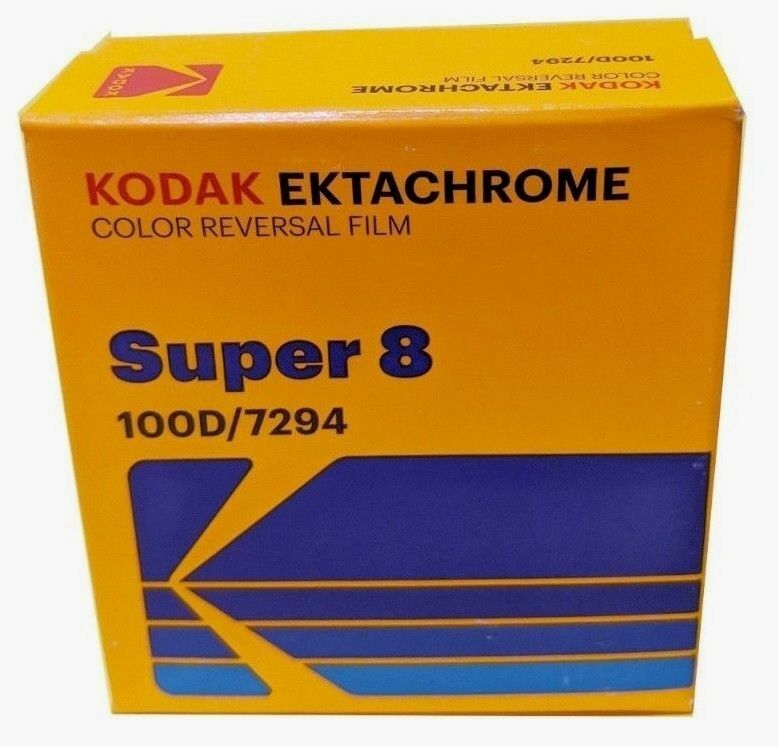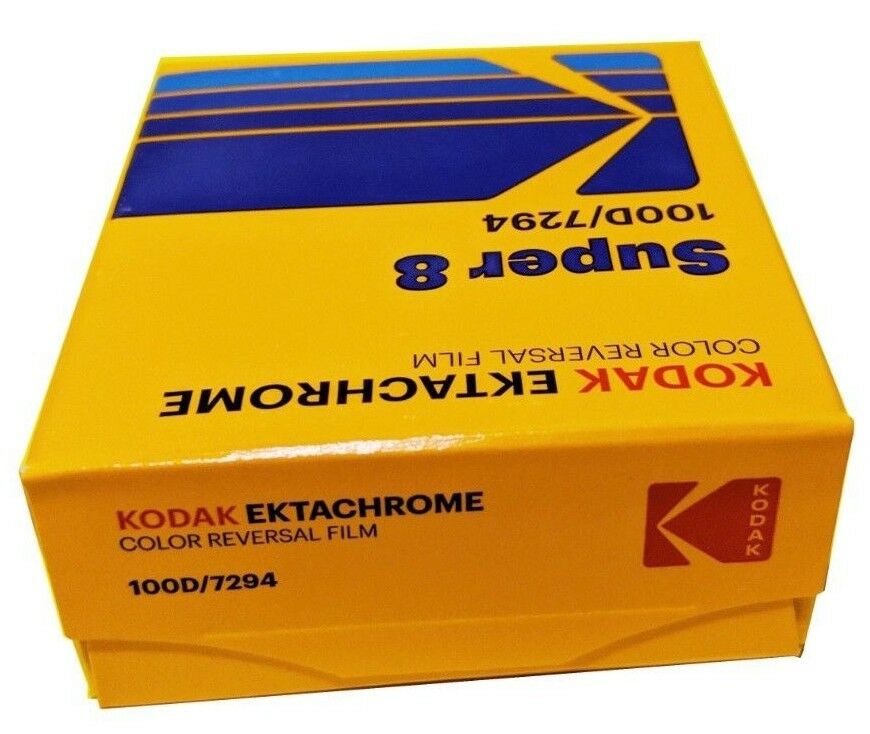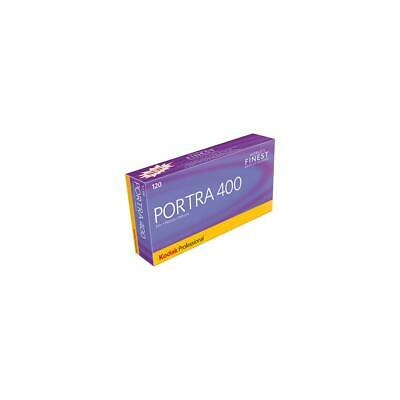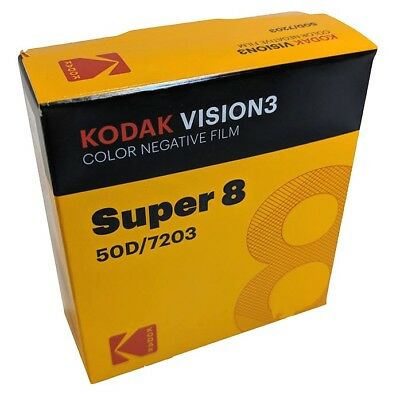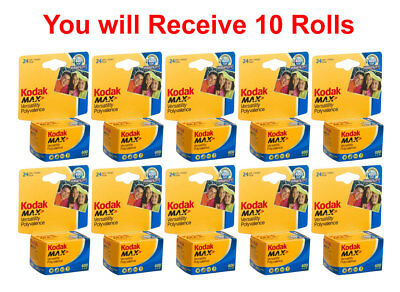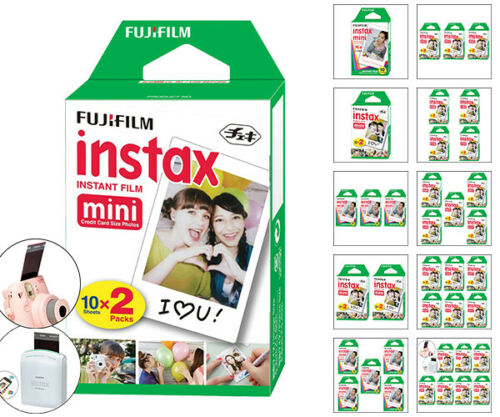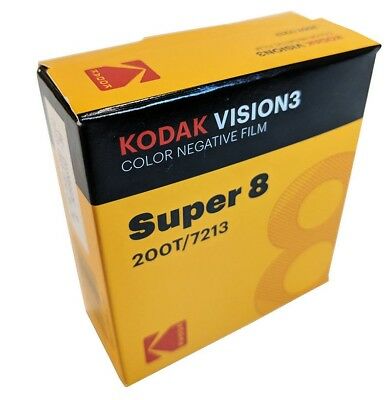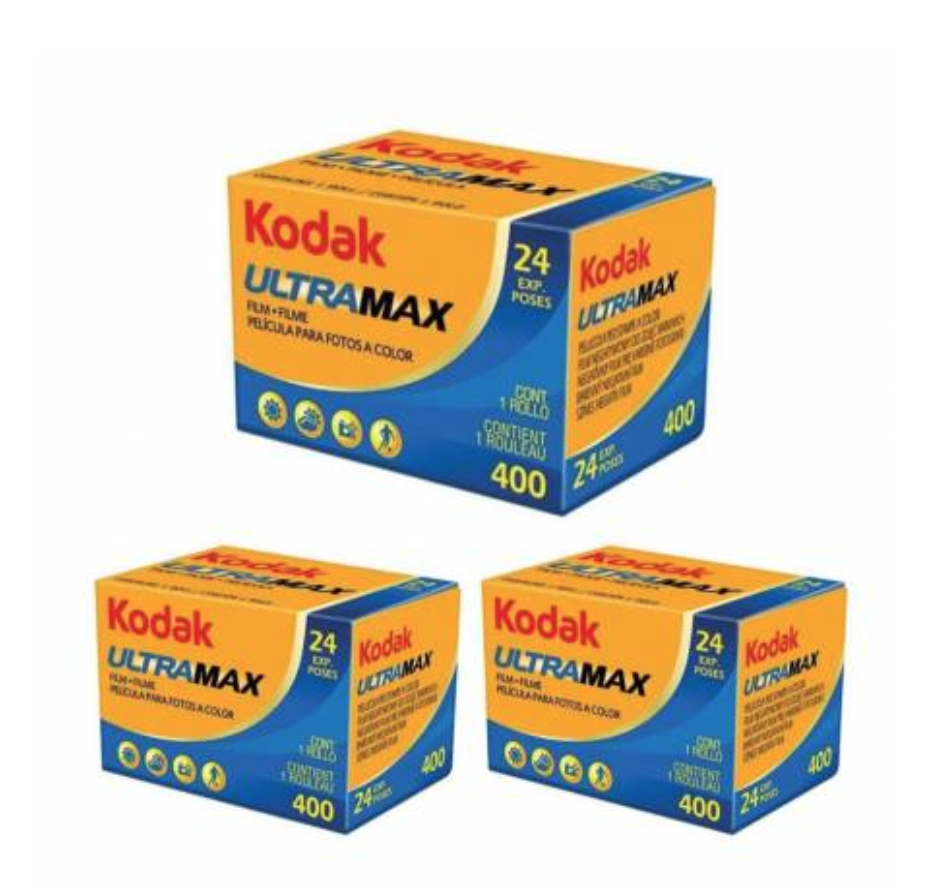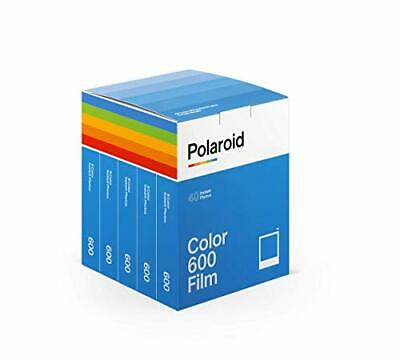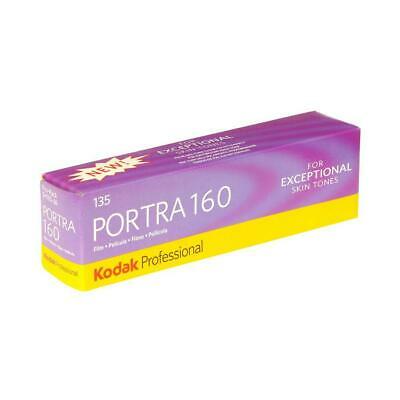-40%
KODAK EKTACHROME SUPER 8 100D COLOR REVERSAL FILM / 7294 *BRAND NEW!* FRESH
$ 24.68
- Description
- Size Guide
Description
KODAK EKTACHROME 100DCOLOR REVERSAL FILM / 7294
TECHNICAL DATA / COLOR REVERSAL FILM *BRAND NEW*
Description:
THIS IS A NEWLY (October 2018!!!!) RELEASED KODAK PRODUCT!
KODAK EKTACHROME 100D Color Reversal Film / 7294 is
a 100-speed, color reversal motion picture camera film
intended for photography under daylight illumination
(5500K). It offers a moderately enhanced color saturation
performance while maintaining a neutral gray scale and
accurate flesh reproduction. 7294 Film has exceptional
sharpness that is unsurpassed by any other 100-speed
reversal film, and its grain performance is excellent. This
film also offers very strong reciprocity uniformity and
keeping stability.
September 2018 • H1-7294t
Exposure Indexes
Daylight (5500K) - 100 / Tungsten (3200K) 2
Use these indexes with incident or reflected light exposure
meters and cameras marked for ISO or ASA speeds or
exposure indexes. These indexes apply for meter readings
of average subjects made from the camera position or for
readings made from a gray card of 18 percent reflectance
held close to and in front of the subject. For unusually light
or dark colored subjects, decrease or increase the exposure
indicated by the meter accordingly.
7294 Film offers outstanding results in outdoor and studio
applications where moderate color saturation is desired.
It is excellent for advertising, nature cinematography,
documentaries, music videos, and is especially good for
telecine transfers and television filming. Light Source KODAK Filters on
Camera* Exposure
Index
Daylight (5500 K) None 100
Metal Halide None 100
Base H.M.I. None 100
KINO FLO KF55 None 100
Tungsten (3000 K) WRATTEN2 Optical No.
80A 25
Tungsten (3200 K) WRATTEN2 Optical No.
80A 25
KINO FLO KF29 WRATTEN2 Optical No.
80A 25
KINO FLO KF32 WRATTEN2 Optical No.
80A 25
Fluorescent, Warm
White † WRATTEN2 CC40B +
CC05C 40
Fluorescent, Cool
White † WRATTEN2 CC20M 80
KODAK EKTACHROME 100D Color Reversal Film / 7294 has
an acetate safety base.
Darkroom Recommendations
Do not use a safelight. Handle unprocessed film in total
darkness.
Storage
Store unexposed film at 13°C (55°F) or lower. For extended
storage, store at -18°C (0°F) or lower. Process exposed
film promptly. Store processed film according to the
recommendations in NAPM IT9.11-1992: for medium-term
storage (minimum of ten years), store at 10°C (50°F)
or lower at a relative humidity of 20 to 30 percent; for
extended-term storage (for preservation of material
having permanent value), store at 2°C (35°F) or lower at a
relative humidity of 20 to 30 percent. For active use, store
at 25°C (77°F) or lower, at a relative humidity of 50 +/- 5
percent. This relates to optimized film handling rather
than preservation; static, dust-attraction and curl-related
problems are generally minimized at the higher relative
humidity. After usage, the film should be returned to the
appropriate medium- or extended-term storage condition
as soon as possible.
For more information about medium- and extended-term
storage, see NAPM IT9.11-1992, and KODAK Publications No.
H-1, EASTMAN Professional Motion Picture Films and No.
H-23, The Book of Film Care.
These are approximate corrections only.
1
Note: Consult the manufacturer of high-intensity ultraviolet
lamps for safety information on ultraviolet radiation and ozone
generation.
Exposure Table-Daylight Illumination
At 24 frames per second (fps), 170-degree shutter opening
EXPOSURE TABLE FOR TUNGSTEN LIGHT
Lens Aperture f/1.4 f/2 f/2.8 f/4 f/5.6 f/8 f/11
Footcandles
Required 25 50 100 200 400 800 1600
Based on 24 frames per second (fps), 170-degree shutter opening. At 18 frames per
second (fps), use 3/4 of the footcandles (fc) shown.
With a KODAK WRATTEN Gelatin Filter No. 80A.
2Characteristic
Reciprocity Characteristics
You do not need to make any filter corrections or exposure
adjustments for exposure times from 1/10,000 to 1 second.
4.0
Red
Processing
Green
Process this film in E-6 Chemicals, cine machine only.
Note: KODAK EKTACHROME 100D Color Reversal Film
/ 7294 contains special sensitizing and filter dyes that
improve color reproduction. Because these dyes are
designed to rinse out of the film during processing, they will
change the color of the first developer, the reversal bath,
the final wash, and the final rinse. This solution discoloration
is only cosmetic. It will not affect sensitometry or the quality
of any Process E-6 film or control material. However,
the solutions will cause splicing tape and processing
equipment (rollers, racks, etc.) to have a pinkish color.
The pink dye residue can easily be washed off processing
equipment by following the normal maintenance
procedures.
3.0
Blue
2.0
1.0
R
G
B
0.0
-4
-3
-2
-1
0
1
CAMERA STOPS
Duplication
Making Duplicates
To make color positive duplicates, scan the film images and
output them KODAK VISION Color Print Film / 2383.
Spectral Sensitivity
2.0
After processing, the product code numbers 7294 (16 mm),
emulsion and roll number identification, KEYKODE numbers,
and internal product symbol (EA) are visible along the
length of the film.
Image Structure
The modulation-transfer curves, and the diffuse rms
granularity data were generated from samples of 7294
Film exposed with tungsten light filtered to 5500K and
processed as recommended in Process E-6 chemicals.
MTF: The “perceived” sharpness of any film depends on
various components of the motion picture production
system. The camera and projector lenses and film printers,
among other factors, all play a role. But the specific
sharpness of a film can be measured and charted in the
Modulation Transfer Curve.
rms Granularity:
Refer to curve. Read with a microdensitometer, (red, green,
blue) using a 48-micrometre aperture.
The “perception” of the graininess of any film is highly
dependent on scene content, complexity, color, and
density. Other factors, such as film age, processing,
exposure conditions, and telecine transfer may also have
significant effects.
Available Roll Lengths
For information on film roll lengths, check Kodak’s Motion
Picture Products Price Catalog at Kodak.com, or see a
Kodak sales representative in your country.
KODAK EKTACHROME 100D Color Reversal Film / 7294
Identification
1.0
2.0
-1.0
Cyan Forming
Magenta Forming
Yellow Forming
-2.0
250
300
350
400
450
500
550
600
650
700
750
WAVELENGTH (nm)
NOTICE: The sensitometric curves and data in this
publication represent product tested under the
conditions of exposure and processing specified. They
are representative of production coatings, and therefore
do not apply to a particular box or roll of photographic
material. They do not represent standards or specifications
that must be met by Eastman Kodak Company. The
company reserves the right to change and improve product
characteristics at any time.Spectral Dye Density
MTF
1000
1.4
Magenta
1.2
Cyan
Visual Nuetral
1
Yellow
0.8
0.6
0.4
100
B
G
10
R
0.2
0
400
450
500
550
600
650
0
700
1
WAVELENGTH (nm)
10
100
1000
SPATIAL FREQUENCY (cycles/mm)
Granularity
4.0
MTF curve - This graph shows a measure of the visual
sharpness of the film. The x-axis, “Spatial Frequency”,
refers to the number of sine waves per millimeter that can
be resolved. The y-axis, “Response”, corresponds to film
sharpness. The longer and flatter the line, the more the film
can resolve, and therefore, the sharper the film.
Red
Green
2.0
0.10
0.05
0.04
0.03
0.02
1.0
0.0
-3.0
0.01
0.006
0.005
0.004
0.003
0.002
-2.0
-1.0
.001
0
Blue
3.0
LOG RELATIVE EXPOSURE
Note: These photographic modulation-transfer values were
determined by using a method similar to the one described
in ANSI Standard PH2.39-1977(R1992). The film was exposed
with the specified illuminant to spatially varying sinusoidal
test patterns having an aerial image modulation of a
nominal 60 percent at the image plane, with processing
as indicated. In most cases, the photographic modulation-
transfer values are influenced by development-adjacency
effects and are not equivalent to the true optical
modulation-transfer curve of the emulsion layer in the
particular photographic product.
rms Granularity curve - To find the rms Granularity value for
a given density, find the density on the left vertical scale
and follow horizontally to the characteristic curve and then
go vertically (up or down) to the granularity curve. At that
point, follow horizontally to the Granularity Sigma D scale
on the right. Read the number and multiply by 1000 for the
rms value. Note: This curve represents granularity based on
modified measuring techniques.
* Availability may vary by location. Contact your local Kodak representative for additional information.
** This product is available as Finish-to-Order (FTO) in various other standard roll lengths and formats. Sold only in specific
minimum order quantities or multiples of the minimum order quantities; non-returnable; US and Canada delivery time of 3
weeks from receipt of purchase order. Other restrictions may apply.
EASTMAN KODAK COMPANY - Rochester, NY 14650
©2021 Kodak. Kodak, Eastman, Ektachrome, Keykode, Vision, and Wratten and the Kodak logo are trademarks. 180924
KODAK EKTACHROME 100D Color Reversal Film / 7294
